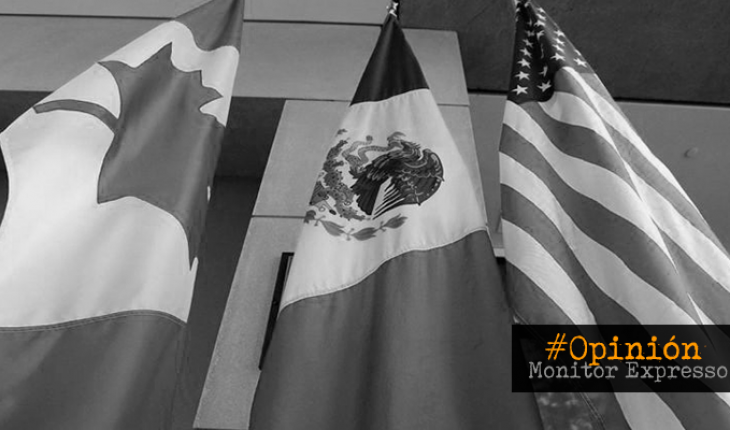Mtro. Miguel Angel Ayala Barajas*
Trade treaties are instruments of economic cooperation that allow the free transit of products between the signatory countries. Mexico, for several years has signed such instruments with different countries around the world, allowing products produced by Mexican companies to reach countries on all continents; as well as, making it easier for products made by companies in other parts of the world to arrive in our country to be marketed. It is enough to review the origin of the clothes we wear, much of what we use and in general much of what we consume as individuals, families and businesses, to realize the importance of trade relations between countries.
However, it is perhaps the economic and commercial relationship with the United States and Canada, which is most important, since in addition to being the broader land border that our country has (to the north), more than 3,000 kilometers, economic, social, cultural and even family relations have strengthened over many years.
Thus, with the entry into force of the Treaty between Mexico, the United States and Canada (T-MEC), better known as NAFTA 2.0 by taking the basis of the trade treaty signed between these countries in 1992, although with considerable modifications, trade and economic integration between signatories is consolidated, providing a regulatory framework that leads to better competitive, productive conditions , investment, economic growth and therefore social welfare for the entire North American region.
It is to be acknowledged that there are valuable progress in the capitulation of the T-MEC, although there is no perfect Trade Treaty, the new topics that are integrated into it, all of which are beneficial to the three countries and which can be read in the document, must be recognized. Subject to careful review by the reader, it is to recognize the Treaty’s innovations in: environmental standards, anti-corruption, digital commerce, intellectual property and medicines, micro, small and medium-sized enterprises, automotive industry, as well as labor standards, to name a few.
Expectations are high, however it should be borne in mind that the entry into force of an instrument of economic and trade collaboration between countries does not de facto bring prosperity for all, it is necessary, that from the local, efforts are made, strategies are made and that will take advantage of the treaty for the improvement of the conditions of all , having the capacity to export, be the destination for investment, generate sources of employment and in general, promote economic growth, should be a shared task, which begins with the entry into force of the Treaty.
It is therefore necessary to review the situations specific to each region of the country or of each State where appropriate and on the basis of this to define strategies that allow to enhance, from the local, what is offered in the T-MEC. For Michoacán, due to the cargo movement carried out by the Port of Lázaro Cárdenas, it is necessary to define a strategy that makes the State of Michoacán as a whole not a spectator of the commercial dynamics carried out by the Port, overcoming the divorce that exists between the growth of port activities and the well-being of the City and the State.
In addition to the above, it is important to particularize the commercial importance of the Port of Lázaro Cárdenas, since, in the last 4 years, it has occupied second and third places nationally because of the volume of movement of goods, just below the Port of Dos Bocas, Tabasco and Manzanillo, Colima. The average annual movement of goods in the last 4 years of the Port of Lazaro Cardenas is 30 million tons, most of them in container and mineral cargo.
Obtaining collective benefits of the commercial importance described, is to review from a government perspective, the local policy of taking advantage of international relations, to stop using the local benefits of the Port of Lazaro Cárdenas as an element of the discourse of politicians or officials and to establish a set of actions, that allow the increase of direct extra-money investment, the export of goods , of the flow of air passengers, to name a few.
Finally, to enhance the expected benefits from the entry into force of the T-MEC in Mexico demand a broad and shared local effort that allows to take advantage of the conditions of each State of the country. In Michoacán, sectors that are already chained to international marketing lines and value will continue to operate with dynamism, but those sectors that they have not, they will remain as spectators of the commercial dynamics between the countries, as is the case with the dynamism of the Port of Lázaro Cárdenas, where many economic sectors of our State are only spectators.
*The author was President of the College of Economists of the State of Michoacán de Ocampo A.C., currently studying the Doctorate in Administrative Sciences and is a consultant on economics and public finances.
The opinions expressed in the columns are the sole responsibility of those who subscribe to them and do not necessarily represent the thought or editorial line of Monitor Expresso





